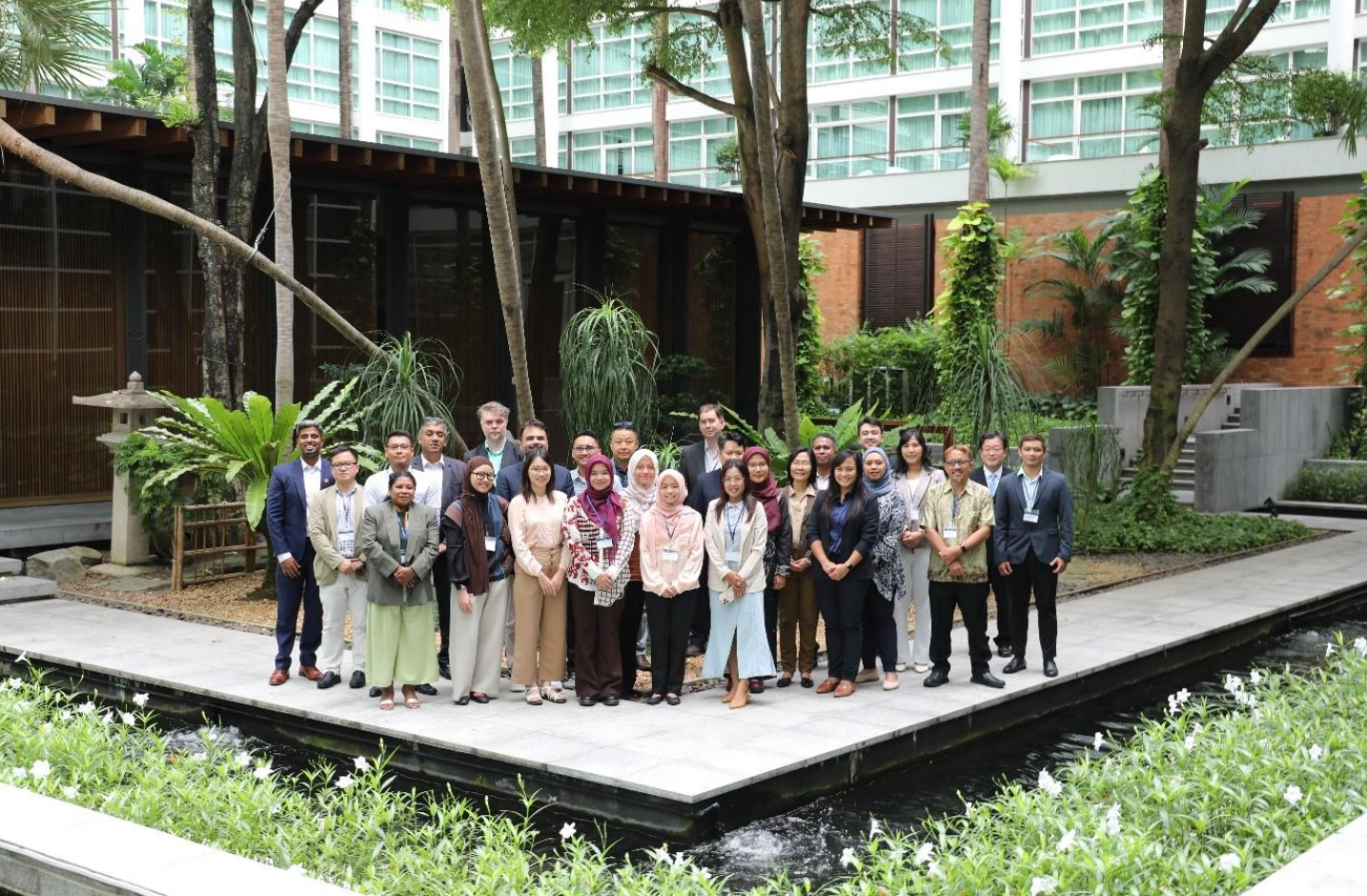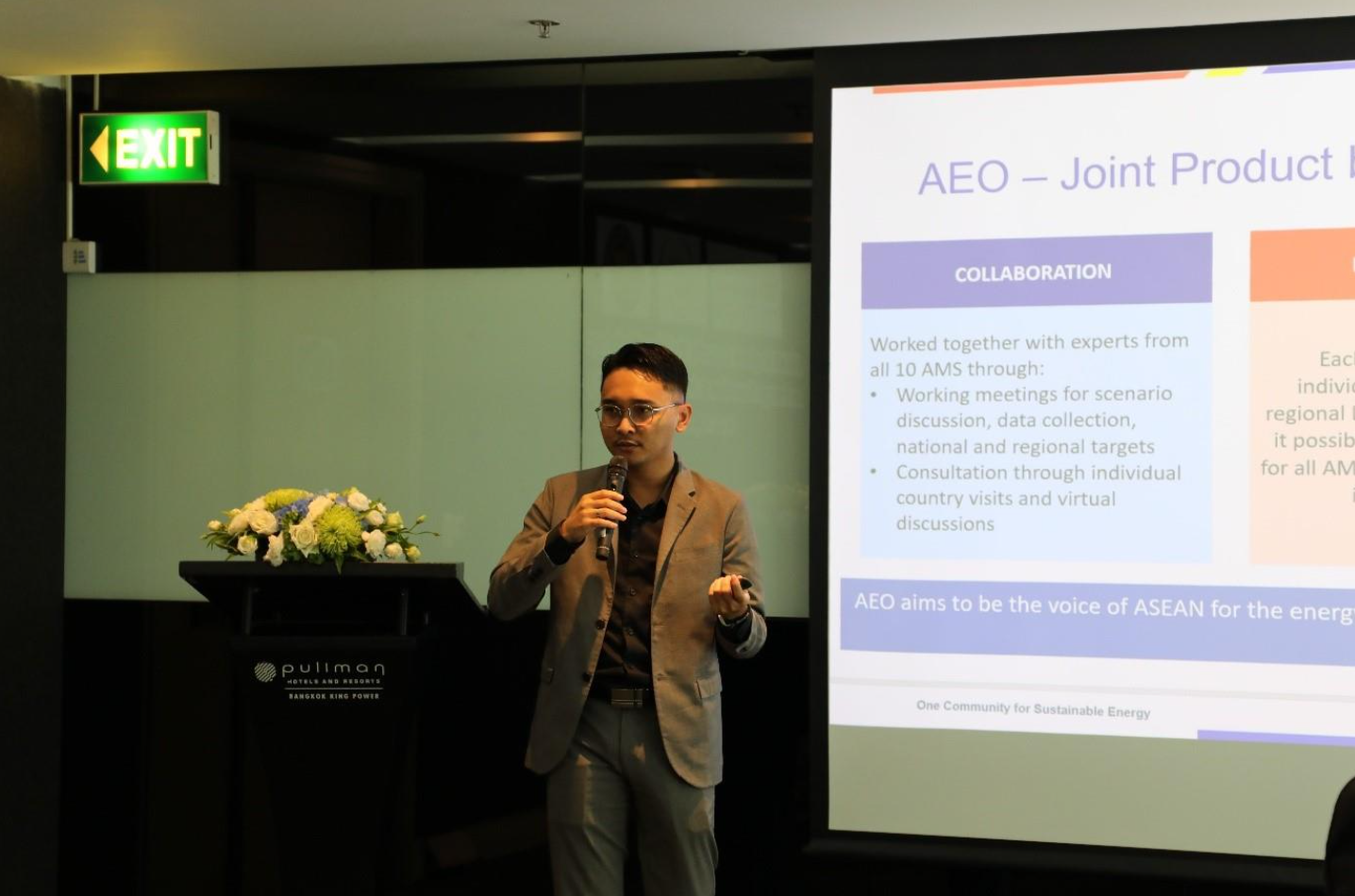Menu

Photo 1. Group photo of the ASEAN Regional Capacity Building Workshop.
From 28–31 July 2025, Sustainable Energy for ALL (SEforALL) organized a regional workshop on energy transition modelling and planning in Bangkok, Thailand, in collaboration with the ASEAN Centre for Energy (ACE) and supported by the ASEAN-United Kingdom (UK) Green Transition Fund (GTF) by the UK Government. The event brought together policymakers, experts, and stakeholders from across Southeast Asia to enhance regional capabilities in transition and investment planning. As part of ongoing efforts to support ASEAN’s energy transition, the workshop facilitated technical exchanges on modelling methodologies that could inform future regional analysis, including the upcoming 9th ASEAN Energy Outlook (AEO9). Through a combination of country presentations, hands-on exercises, and collaborative discussions, participants examined approaches to sustainable energy planning that balance development priorities with climate objectives.
The workshop began with countries exchanging energy transition planning approaches, revealing both shared challenges and country-unique approaches. Indonesia shared its four-phase clean energy roadmap, Malaysia demonstrated its Integrated System Planning method, while the Philippines presented its comprehensive Energy Plan. Thailand, Vietnam, Myanmar, and Timor-Leste highlighted unique challenges in decarbonization, infrastructure, and energy access. These discussions highlighted the needs for enhanced modelling capabilities and robust data frameworks to support integrated power and emissions planning. By sharing these diverse national experiences upfront, participants gained crucial context. This allowed them to better understand SEforALL’s Energy Systems Model (SEM), ensuring the subsequent technical training was grounded in ASEAN’s real-world policy landscapes and transition challenges.

Photo 2. Muhammad Rizki Kresnawan of ACE of ACE presented on the AEO9 Progress.
Equipped with this country perspective, participant then delve into SEM’s technical components, starting with methodology, interface navigation, and model calibration to address data gaps. Sector-specific deep dives examined power/storage (with emphasis on hydrogen), industrial processes, building energy use, transport technologies, and agricultural socio-economic impacts. Participants applied these tools through hands-on exercises, developing Business-as-Usual scenario and modelling a net zero pathways. The training also introduced specialized energy access tools, OnSSET for least-cost electrification planning and OnStove for clean cooking transitions. Further country-level discussions allowed participants to update local policy contexts and incorporate national data sources, ensuring that the scenarios developed reflected each country’s specific energy transition priorities and realities.
The workshop concluded by reinforcing commitments to deepen technical collaboration between SEforALL and ACE, particularly in advancing the AEO9 and ASEAN Energy Transition and Investment Roadmap (ETIR) through enhanced modelling and data exchange. SEforALL outlined next steps under the UK-ASEAN GTF initiative, including two follow-up capacity-building workshops to further develop regional energy transition planning capabilities. ACE’s Muhammad Rizki Kresnawan emphasized how workshop outputs will directly inform AEO9 development through three key technical contributions: (1) modelling efforts to refine methodologies, (2) rigorous data validation processes, and (3) expanded analysis of transition elements beyond current frameworks. This partnership ensures ASEAN’s energy planning remains technically robust while supporting climate-aligned development goals through continued knowledge sharing and capacity building.
